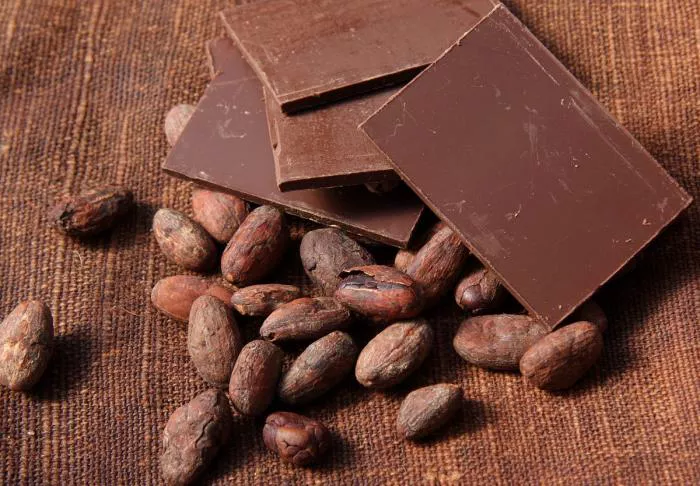Breastfeeding is a time of significant change for new mothers. It involves a lot of adjustments in diet and lifestyle. Many mothers wonder about their food choices, especially when it comes to treats like chocolate. This article explores how much chocolate you can eat while breastfeeding and its effects on you and your baby.
The Nutritional Value of Chocolate
Chocolate can be a delightful treat. It comes in various forms, from dark chocolate to milk chocolate. Each type has different nutritional profiles.
Dark Chocolate contains higher cocoa content. It is rich in antioxidants and may have health benefits. These include improving heart health and boosting mood.
Milk Chocolate has more sugar and fat compared to dark chocolate. While it can satisfy a sweet tooth, it does not offer the same health benefits.
White Chocolate is made from cocoa butter, sugar, and milk. It lacks cocoa solids and is not considered a true chocolate. It is high in sugar and fat but low in nutrients.
Benefits of Eating Chocolate While Breastfeeding
Moderate chocolate consumption can have some benefits for breastfeeding mothers:
Mood Booster: Chocolate can improve your mood. It releases endorphins, which help reduce stress. This can be especially helpful during the demanding times of motherhood.
Nutritional Benefits: Dark chocolate is rich in iron, magnesium, and antioxidants. These nutrients can support your health as you recover from childbirth.
Caffeine Content: Chocolate contains a small amount of caffeine. This can provide a mild energy boost. However, it is essential to monitor overall caffeine intake.
How Much Chocolate is Safe?
Moderation is key. Eating chocolate in small amounts is generally safe while breastfeeding. The recommendation is to limit chocolate intake to about one ounce (28 grams) per day. This amount allows you to enjoy the treat without excessive sugar and fat.
Caffeine Considerations
Caffeine is present in chocolate, especially dark chocolate. The amount of caffeine varies by type:
Dark Chocolate: Contains about 20-60 milligrams of caffeine per ounce.
Milk Chocolate: Contains about 5-15 milligrams of caffeine per ounce.
White Chocolate: Contains negligible caffeine.
The American Academy of Pediatrics advises that breastfeeding mothers limit caffeine intake to about 300 milligrams per day. This includes all sources of caffeine, such as coffee, tea, and chocolate.
Monitoring Your Baby’s Reaction
Babies can be sensitive to what their mothers consume. Some infants may react to chocolate, especially if it is consumed in large quantities. Watch for any signs of sensitivity in your baby, such as:
Increased Fussiness: If your baby seems more irritable after you eat chocolate, it might be worth reducing your intake.
Sleep Disturbances: Excessive caffeine may affect your baby’s sleep patterns.
Digestive Issues: Some babies may experience gas or tummy troubles.
If you notice any of these issues, consider reducing your chocolate consumption and discuss it with your healthcare provider.
Tips for Enjoying Chocolate
If you want to indulge in chocolate while breastfeeding, here are some tips:
Choose Dark Chocolate: Opt for dark chocolate with at least 70% cocoa content. It is lower in sugar and has more health benefits.
Watch Portion Sizes: Stick to one ounce per day. This keeps your intake moderate.
Pair with Healthy Foods: Combine chocolate with healthier options. For example, dark chocolate-covered nuts or fruit can provide additional nutrients.
Stay Hydrated: Drinking plenty of water can help your body process sugar and caffeine more effectively.
Potential Risks of Excessive Chocolate Consumption
While moderate consumption is generally safe, excessive chocolate intake can lead to potential risks:
Weight Gain: Chocolate is calorie-dense, especially milk and white chocolate varieties. Eating too much can contribute to unwanted weight gain.
Increased Sugar Intake: Many chocolate products are high in sugar. This can affect your overall health and lead to issues like gestational diabetes.
Caffeine Overload: Consuming too much chocolate can lead to excess caffeine. This can cause restlessness, anxiety, and difficulty sleeping.
Balancing Chocolate with a Healthy Diet
It is crucial to maintain a balanced diet while breastfeeding. Include a variety of foods that provide essential nutrients:
Fruits and Vegetables: These provide vitamins, minerals, and fiber. Aim for a colorful variety.
Whole Grains: Foods like brown rice, whole grain bread, and oats are excellent sources of energy.
Lean Proteins: Include chicken, fish, eggs, and legumes for protein. These support recovery and milk production.
Healthy Fats: Avocados, nuts, and seeds offer healthy fats that are essential for both you and your baby.
Conclusion
In conclusion, chocolate can be enjoyed in moderation while breastfeeding. Aim for about one ounce per day, and opt for dark chocolate for the most benefits. Be mindful of caffeine intake and monitor your baby’s reactions to your diet.
Maintaining a balanced diet rich in nutrients is vital for your health and your baby’s well-being. If you have concerns about your diet while breastfeeding, consult your healthcare provider for personalized advice.
Enjoying chocolate as an occasional treat can be part of a healthy breastfeeding experience. It is all about balance and making informed choices.
Related topics:


